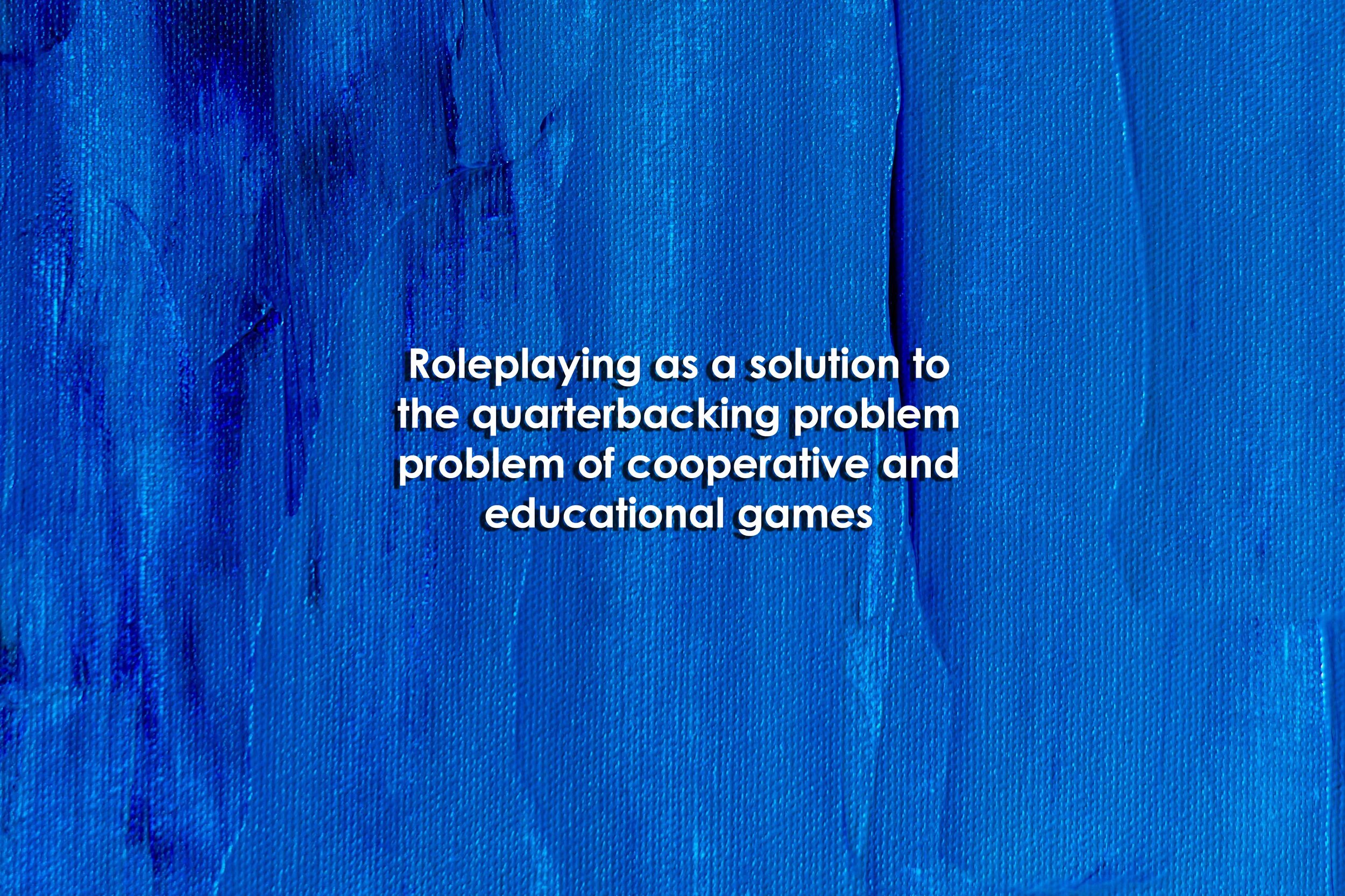Roleplaying as a solution to the quarterbacking problem problem of cooperative and educational games
Roleplaying as a solution to the quarterbacking problem problem of cooperative and educational games
Roleplaying as a solution to the quarterbacking problem problem of cooperative and educational games
Josh Aaron Miller
June 6, 2021
Summary
The quarterbacking problem or "Alpha gamer problem"1 is a well-known phenomenon in tabletop cooperative games in which one or more alpha player(s)2 dominate the decision-making of the game against the consent of the other players.
Since Koster is examining this space with respect to trust mechanics, he also notes that the quarterbacking problem occurs primarily in games with a moderate level of trust: games with minimal asymmetric mechanics, a mix of cooperative shifting roles and oppositional teams, overlapping but distinct roles, abilities to help others, and perfect information except against opponents.
Like cooperative games, multiplayer educational games also often include working together to solve a problem.
Solutions to the quarterbacking problem for educational games are limited in how they can use existing solutions, since most paradigms which restrict quarterbacking, as shown in this article, also restrict mentoring by preventing or discouraging table talk and the open sharing of ideas.
In this article, I argue that the dynamic of roleplaying is an underexplored design pattern uniquely suited for addressing both quarterbacking and the need for learning in cooperative and educational games.
In summary, roleplaying can increase empathy, perspective taking, mastery, control, and learning, making it a potentially effective tool in educational games and cooperative tasks.
Roleplaying can therefore be a preventative measure to quarterbacking in this way: by encouraging the players to take on the identities of avatars who reject non-consensual quarterbacking, the game's design can develop - first-order - a set of social dynamics nuanced enough to prevent non-consensual quarterbacking while allowing consensual quarterbacking.
Although these two games don't span the entire design space of what Roleplaying can do to restrict quarterbacking, they demonstrate how Roleplaying can be used in both entertainment and educational contexts.
Quarterbacking has been a well-known problem in cooperative games for more than a decade now. I proposed roleplaying as an underexplored solution to the quarterbacking problem which is also uniquely designed to additionally address the need for learning in educational cooperative games.
Reference
Miller, J. (2021, June 06). Analog game studies. Retrieved July 08, 2021, from https://analoggamestudies.org/2021/06/roleplaying-as-a-solution-to-the-quarterbacking-problem-of-cooperative-and-educational-games/


